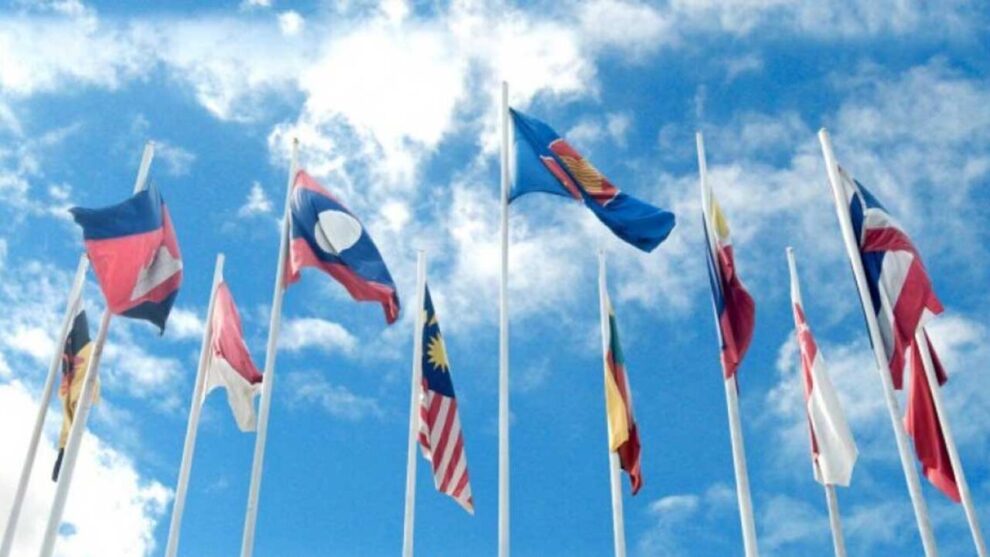It was shocking to see China’s ambitious plan for harmonizing AI governance by launching China’s Global Artificial Intelligence Governance Initiative. This initiative aimed to promote China’s AI Governance principles for countries who have partnered with China in the Belt and Road Initiative. This elevates the intensity of AI Competition between China, the United States of America, and the European Union as the European Union is very close to finalising the Artificial Intelligence Act and they are lobbying developed countries to place the Act as the main reference of AI regulation. On the other hand, Singapore and The United States of America are discussing collaborative AI Governance interoperability by integrating Singapore’s AI Verify and the National Institute of Standards and Technology (NIST). As the AI governance standards, principles, and regulations by leading AI regional organization or countries has been introduced and implemented, how should Indonesia do?
ASEAN Initiative on AI Governance
ASEAN has launched the Digital Economy Framework Agreement (DEFA) that should be finalized and agreed in 2024. One of the provisions of DEFA is AI Governance which focuses on the implementation of ethics and governance structure, cooperation on innovation and AI regulation, and harmonization of AI standards and governance. ASEAN’s goal to establish itself as an independent and strong regional country is reflected in its intention to harmonize any applicable AI standards and governances which are currently being adopted by ASEAN’s member state, for example, AI Verify by Singapore. This tool helps AI developers gain a better knowledge about their AI governance position and what they should improve to achieve an AI better governance. Another example is the current Indonesia’s regulatory sandbox for any technology innovation adopted by financial technology. Harmonizing each member state’s AI governance could give advantages to each member state. First, this alignment should improve potential knowledge transfer between ASEAN countries. According to Oxford’s AI Research 2022, Singapore was the only country that clinched the top ten countries. This shows the large gap in achieving the best AI adoption in ASEAN countries. Therefore, harmonization among member states shall help elevate other countries’ AI readiness position. Second, harmonization should open a potential AI business climate in ASEAN. According to the Kearney study, almost all of ASEAN’s AI companies are early-stage companies, which means that those companies have limited resources, and their business models are still evolving to achieve product market fit. Therefore, the harmonized standards and governance could boost the AI products utilization among ASEAN countries and simplify compliance process for AI Companies.
Indonesia’s Interest in AI Governance
According to the Lowy Institute Asia Power Index 2023, Indonesia is considered the most influential diplomacy power in ASEAN. This may be caused by Indonesia’s position as the largest country by geographical and population conditions. Furthermore, Indonesia’s past experiences as the host for the G-20 Summit in 2022 and ASEAN Chairmanship in 2023 improve Indonesia’s bargaining position as a leader in regional interaction. Therefore, Indonesia plays an important role in driving ASEAN’s position towards AI regional governance. To ensure that ASEAN has a strong AI Regional Governance, Indonesia could drive the pressing issue of AI: Data Governance. ASEAN has been perceived as one of the largest data pools in the world, placing the region as the potential AI ecosystem. Furthermore, Indonesia is acknowledged as an exciting technology business area from a large dataset. Therefore, Indonesia should influence data governance by pushing the free flow with trust and encouraging harmonization over data regulations. The other point that Indonesia should advocate is the transfer of knowledge and cooperation in procuring an improved AI methodology, infrastructure and investment. Although Indonesia has the upper hand over data resources and potential economy for investment, the country does not have continuing knowledge and adequate infrastructure. On the other hand, AI needs skilled human resources and sufficient infrastructure to operate optimally. Therefore, Indonesia must address the dynamic transfer of knowledge conducted through academic agreements between ASEAN universities. In addition, infrastructure procurement is encouraged by strategic investment between ASEAN member states. By having sufficient infrastructure localized in Indonesia, the country could elevate their digital transformation and foster the digital economy.
Mitigating AI Risks in Southeast Asian Countries
AI has two side of coins, the superhero face and the villain face. AI could enhance human’s quality by leveraging the efficiency in completing tasks. Thus, AI could be utilized to enhance public services activities such as licensing, managing legal drafting, etc. However, AI poses risks that should be addressed. Southeast Asia region is commonly known for its diversity in culture, tribe, and religion. This situation creates the protection over indigenous and minority groups has been one of the ASEAN spirits. Therefore, the protection and assurance for these groups should be widen to AI Governance. ASEAN AI Governance should promote the ethical AI for mitigating bias and unfair treatment for these groups. This is relevant because the potential automatic decision making technology for any purposes, either for public services or private activities, may hamper the living harmony among groups in this region.
Being The Independent and Strong Area
Lastly, establishing the unified principles of AI Governance is important to cement the Southeast Asia area as a strong and independent community. As leading countries and regional organisations have been establishing their policy initiatives and lobbying other countries to follow their regulatory approach, each member state should take a precautionary approach before adopting or referring their perspective. This is because the Southeast Asia region is not as same as other regions due to the diversity of its people. Therefore, benchmarking, regulatory mapping, and deep analysis from various angles must be conducted. For example, Indonesia which has lots of local tribes and is low in AI Innovation must objectively and wisely assess the current regulatory and policy approach adopted by other countries because they have a target of achieving societal protection through regulation and stimulating innovation. Therefore, stringent regulation would hamper innovation growth, carving out the potential AI for achieving digital transformation and effective governance. In that case, it is important to achieve a balanced position by gradually introducing AI Governance policy to the AI Ecosystem. From that example, we can see that ASEAN’s position is important to establish their own AI Governance principles as a reference to each member state for adopting and producing regulations and policies that effectively answer their issues and escort the government to achieving the targets. This is something that Indonesia, as the leading diplomacy power in ASEAN, should advocate in the first place.
Source : Modern Diplomacy










